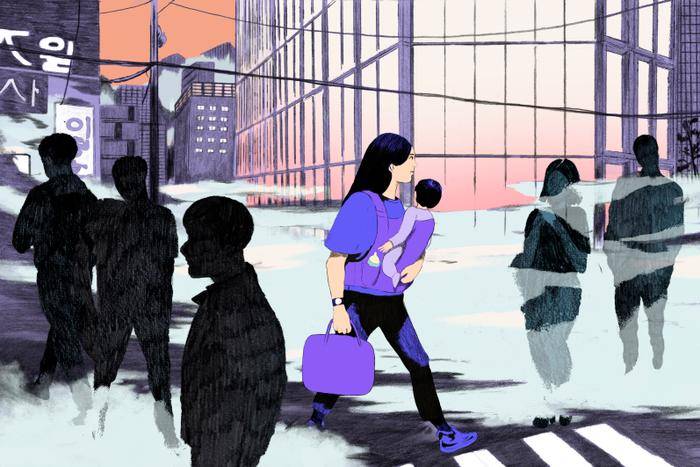Breaking the Silence: South Korea's Divorced Mothers Speak Out Against Stigma and Hardship
In a country where traditional values and social norms often prioritize family unity over individual happiness, divorced mothers in South Korea are breaking their silence and speaking out against the stigma and hardship they face. Despite being a growing demographic, these women are often marginalized, excluded, and ignored, forced to navigate a society that seems determined to punish them for their perceived failures.
According to the Korean National Statistical Office, the number of divorced mothers in South Korea has been steadily increasing over the past few decades. In 2020, there were over 1.2 million divorced women in the country, many of whom are raising children on their own. Despite this growing demographic, divorced mothers in South Korea continue to face significant social stigma, economic hardship, and limited support systems.
"We're not just statistics or stereotypes," said Lee Ji-Hyun, a 35-year-old divorced mother of two who has become a vocal advocate for the rights of single mothers. "We're women with our own stories, struggles, and strengths. It's time for our voices to be heard."
Divorced mothers in South Korea face significant social stigma and stereotypes. Many are viewed as "failed" women who have not been able to maintain a successful marriage. This stigma can lead to social isolation, as many divorced mothers are excluded from social events and gatherings.
"I was shocked by how quickly my friends and family distanced themselves from me after my divorce," said Kim Soo-Young, a 40-year-old divorced mother of three. "It was as if I had committed a crime. I felt like I was living in a society that didn't want me."
Divorced mothers in South Korea also face significant economic hardship. Many are forced to work multiple jobs to make ends meet, as the country's social welfare system provides limited support for single mothers.
"I work two jobs, seven days a week, just to provide for my children," said Park Ji-Min, a 38-year-old divorced mother of two. "I'm exhausted, but I have no choice. The government doesn't provide enough support for single mothers like me."
Divorced mothers in South Korea face limited support systems, including inadequate childcare services, insufficient financial support, and a lack of social services.
"We need more comprehensive support, including affordable childcare, job training, and social welfare programs," said Lee Ji-Hyun. "We also need to change the social stigma surrounding divorce and single motherhood."
The South Korean government has begun to take notice of the growing movement of divorced mothers. In 2020, the government introduced a new policy aimed at providing greater support for single mothers, including increased childcare subsidies and job training programs.
However, many divorced mothers say that the government's efforts are insufficient and that more needs to be done to address the root causes of their struggles.
"The government's policies are a step in the right direction, but they don't go far enough," said Kim Soo-Young. "We need more comprehensive support, including affordable childcare, job training, and social welfare programs. We also need to change the social stigma surrounding divorce and single motherhood.
The struggle of divorced mothers in South Korea is a complex and multifaceted issue that requires a comprehensive and nuanced solution. As these women continue to break their silence and speak out against the stigma and hardship they face, it is essential that the government, civil society, and individuals listen to their voices and respond with empathy, understanding, and support. By working together, we can create a more inclusive and equitable society for all.



No comments yet
Be the first to share your thoughts!